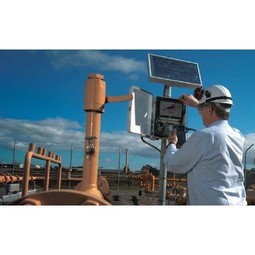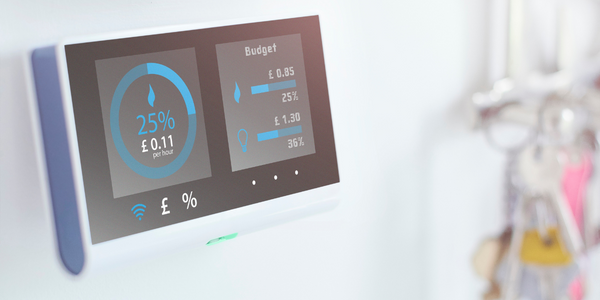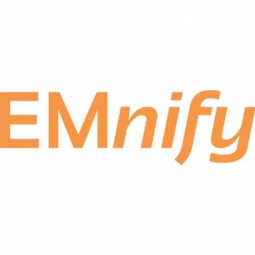下载PDF
How ev.energy uses EMnify to help EV drivers save 160 tonnes of CO2 and £215,000
技术
- 网络与连接 - 蜂窝
- 网络与连接 - 网络管理和分析软件
适用行业
- 汽车
- 公用事业
- 电网
适用功能
- 物流运输
- 产品研发
用例
- 车载远程信息处理
- 能源管理系统
- 网络安全
服务
- 云规划/设计/实施服务
- 系统集成
- 测试与认证
挑战
ev.energy is a company that develops a smart charging management software that optimizes charge schedules based on drivers‘ energy tariffs and the estimated carbon intensity of the grid. The company works with the world’s leading charge point manufacturers, automotive and energy companies to deliver a complete smart charging solution to end users. However, they needed a robust IoT communication solution that works globally and securely integrates into their software. They were previously on a contract with a European network operator but decided to switch due to various challenges.
关于客户
ev.energy is a company focused on delivering the best at-home charge experience for worldwide EV owners. They develop a smart charging management software that optimizes charge schedules based on drivers‘ energy tariffs and the estimated carbon intensity of the grid. By shifting charging sessions to offpeak times, the resulted energy costs and carbon footprint can be minimized. The company works with the world’s leading charge point manufacturers, automotive and energy companies to deliver a complete smart charging solution to end users. They have offices in London, UK, and Palo Alto, USA.
解决方案
ev.energy switched to EMnify for their IoT communication needs. EMnify’s IoT SIM provided reliable, out-of-the-box cellular connectivity no matter where the chargers are. The Intra-Cloud Connect feature allowed ev.energy to establish a secure, private network between chargers and the software application without using the public Internet. This ensured that all communication remained invisible from the outside world to prevent false, unwanted control signals to the chargers. EMnify’s custom DNS service brought the flexibility ev.energy needed, eliminating the need for firmware changes by charge point vendors while ensuring DNS security. The OpenVPN service proved to be useful for ev.energy to onboard new charge points to their platform and test device behaviour during the pilot phase.
运营影响
数量效益
相关案例.

Case Study
IoT Solutions for Smart City | Internet of Things Case Study
There were several challenges faced: It is challenging to build an appliance that can withstand a wide range of voltage fluctuations from as low at 90v to as high as 320v. Since the device would be installed in remote locations, its resilience was of paramount importance. The device would have to deal with poor network coverage and have the ability to store and re-transmit data if networks were not available, which is often the case in rural India. The device could store up to 30 days of data.

Case Study
Automation of the Oguz-Gabala-Baku water pipeline, Azerbaijan
The Oguz-Gabala-Baku water pipeline project dates back to plans from the 1970’s. Baku’s growth was historically driven by the booming oil industry and required the import of drinking water from outside of the city. Before the construction of the pipeline, some 60 percent of the city’s households received water for only a few hours daily. After completion of the project, 75 percent of the two million Baku residents are now served around the clock with potable water, based on World Health Organization (WHO) standards. The 262-kilometer pipeline requires no pumping station, but uses the altitude differences between the Caucasian mountains and the capital to supply 432,000 m³/d to the Ceyranbatan water reservoir. To the people of Baku, the pipeline is “the most important project not only in 2010, but of the last 20 years.”

Case Study
GPRS Mobile Network for Smart Metering
Around the world, the electricity supply industry is turning to ‘smart’ meters to lower costs, reduce emissions and improve the management of customer supplies. Smart meters collect detailed consumption information and using this feedback consumers can better understand their energy usage which in turn enables them to modify their consumption to save money and help to cut carbon emissions. A smart meter can be defined in many ways, but generally includes an element of two-way communication between the household meter and the utility provider to efficiently collect detailed energy usage data. Some implementations include consumer feedback beyond the energy bill to include online web data, SMS text messages or an information display in consumers’ premises. Providing a cost-effective, reliable communications mechanism is one of the most challenging aspects of a smart meter implementation. In New Zealand, the utilities have embraced smart metering and designed cost effective ways for it to be implemented. The New Zealand government has encouraged such a move to smart metering by ensuring the energy legislation is consistent with the delivery of benefits to the consumer while allowing innovation in this area. On the ground, AMS is a leader in the deployment of smart metering and associated services. Several of New Zealand’s energy retailers were looking for smart metering services for their residential and small business customers which will eventually account for over 500,000 meters when the multi-year national deployment program is concluded. To respond to these requirements, AMS needed to put together a solution that included data communications between each meter and the central data collection point and the solution proposed by Vodafone satisfied that requirement.

Case Study
Integral Plant Maintenance
Mercedes-Benz and his partner GAZ chose Siemens to be its maintenance partner at a new engine plant in Yaroslavl, Russia. The new plant offers a capacity to manufacture diesel engines for the Russian market, for locally produced Sprinter Classic. In addition to engines for the local market, the Yaroslavl plant will also produce spare parts. Mercedes-Benz Russia and his partner needed a service partner in order to ensure the operation of these lines in a maintenance partnership arrangement. The challenges included coordinating the entire maintenance management operation, in particular inspections, corrective and predictive maintenance activities, and the optimizing spare parts management. Siemens developed a customized maintenance solution that includes all electronic and mechanical maintenance activities (Integral Plant Maintenance).

Case Study
NB-IoT connected smart meters to improve gas metering in Shenzhen
Shenzhen Gas has a large fleet of existing gas meters, which are installed in a variety of hard to reach locations, such as indoors and underground, meaning that existing communications networks have struggled to maintain connectivity with all meters. The meter success rate is low, data transmissions are so far unstable and power consumption is too high. Against this background, Shenzhen Gas, China Telecom, Huawei, and Goldcard have jointly trialed NB-IoT gas meters to try and solve some of the challenges that the industry faces with today’s smart gas meters.






